Intro
Discover lymph node inflammation causes, symptoms, and treatments. Learn about swollen lymph nodes, lymphadenitis, and related conditions like infections, cancers, and autoimmune disorders.
The lymphatic system plays a vital role in our body's defense against infections and diseases. Lymph nodes, which are small, bean-shaped structures, are an essential part of this system. They help filter out harmful substances and cells, and they also aid in the production of immune cells. However, when lymph nodes become inflamed, it can be a sign of an underlying health issue. In this article, we will delve into the causes of lymph node inflammation, its symptoms, and what you can do to prevent and treat it.
Lymph node inflammation, also known as lymphadenitis, occurs when the lymph nodes become swollen and painful. This can be caused by a variety of factors, including infections, autoimmune disorders, and cancer. In some cases, lymph node inflammation can be a sign of a more serious underlying condition, so it is essential to seek medical attention if you experience any symptoms. The good news is that in many cases, lymph node inflammation can be treated effectively with antibiotics, anti-inflammatory medications, or other therapies.
The lymphatic system is a complex network of vessels, organs, and tissues that help defend the body against infection and disease. Lymph nodes are a critical part of this system, and they can be found throughout the body, including in the neck, armpits, and groin. When the body detects the presence of foreign substances, such as bacteria or viruses, the lymph nodes become active and start to produce immune cells to fight off the infection. However, if the infection is severe or the immune system is weakened, the lymph nodes can become overwhelmed, leading to inflammation.
Lymph Node Inflammation Symptoms
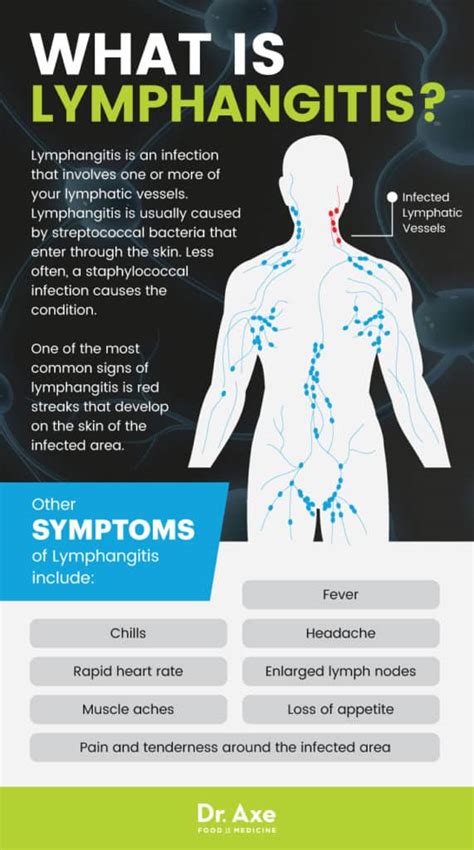
Causes of Lymph Node Inflammation
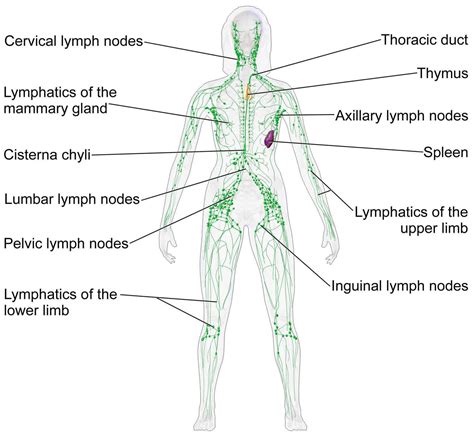
Infections that Cause Lymph Node Inflammation
Infections are a common cause of lymph node inflammation. Bacterial infections, such as strep throat and tuberculosis, can cause lymph node inflammation. Viral infections, such as mononucleosis and HIV, can also cause lymph node inflammation. In some cases, fungal infections, such as histoplasmosis, can cause lymph node inflammation.Autoimmune Disorders that Cause Lymph Node Inflammation
Autoimmune disorders, such as rheumatoid arthritis and lupus, can cause lymph node inflammation. In these disorders, the immune system mistakenly attacks healthy tissues, including the lymph nodes. This can lead to inflammation and damage to the lymph nodes.Treatment Options for Lymph Node Inflammation
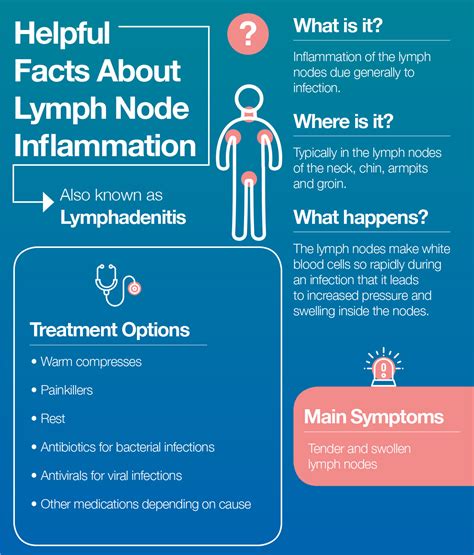
Home Remedies for Lymph Node Inflammation
There are several home remedies that can help alleviate the symptoms of lymph node inflammation. Applying a warm compress to the affected area can help reduce pain and swelling. Getting plenty of rest and staying hydrated can also help the body recover from the underlying infection or condition. In some cases, over-the-counter pain medications, such as acetaminophen or ibuprofen, may be necessary to manage pain and discomfort.Prevention of Lymph Node Inflammation
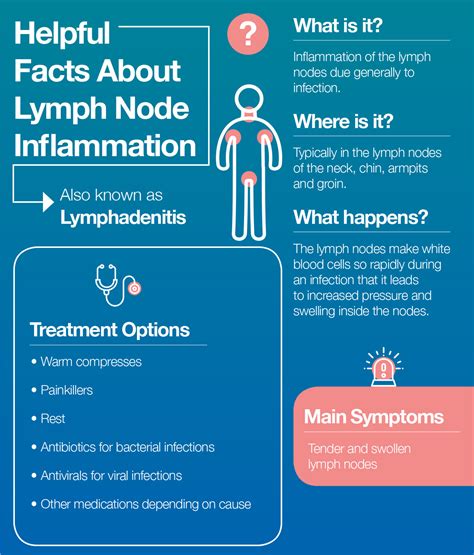
Importance of Early Detection and Treatment
Early detection and treatment of lymph node inflammation are crucial to prevent complications and promote recovery. If you experience any symptoms of lymph node inflammation, such as swollen and painful lymph nodes, fever, or fatigue, it is essential to seek medical attention. Your doctor may perform a physical examination, take a medical history, and order diagnostic tests, such as blood tests or imaging studies, to determine the underlying cause of the inflammation.Complications of Lymph Node Inflammation
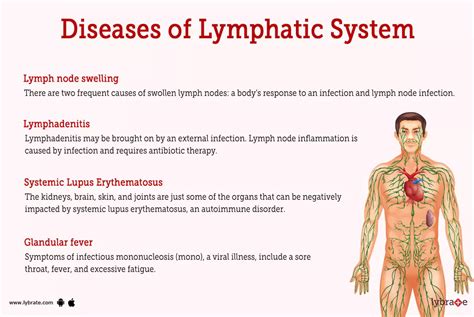
Long-term Effects of Lymph Node Inflammation
The long-term effects of lymph node inflammation can vary depending on the underlying cause and the severity of the inflammation. In some cases, lymph node inflammation can lead to chronic fatigue, weight loss, and decreased immune function. In other cases, lymph node inflammation can lead to more serious complications, such as lymphoma or sepsis.What are the symptoms of lymph node inflammation?
+The symptoms of lymph node inflammation include swollen and painful lymph nodes, fever, fatigue, and weight loss. In some cases, the skin over the affected lymph node may become red, warm, and tender to the touch.
What are the causes of lymph node inflammation?
+Lymph node inflammation can be caused by infections, autoimmune disorders, and cancer. Infections such as strep throat, mononucleosis, and tuberculosis can cause lymph node inflammation. Autoimmune disorders, such as rheumatoid arthritis and lupus, can also cause lymph node inflammation.
How is lymph node inflammation treated?
+The treatment for lymph node inflammation depends on the underlying cause. If the inflammation is caused by an infection, antibiotics or antiviral medications may be prescribed. If the inflammation is caused by an autoimmune disorder, medications such as corticosteroids and immunosuppressants may be prescribed.
In conclusion, lymph node inflammation is a common condition that can be caused by a variety of factors, including infections, autoimmune disorders, and cancer. While it can be treated effectively with antibiotics, anti-inflammatory medications, or other therapies, it is essential to seek medical attention if you experience any symptoms. By understanding the causes, symptoms, and treatment options for lymph node inflammation, you can take steps to prevent and manage this condition. If you have any questions or concerns about lymph node inflammation, we encourage you to comment below or share this article with others who may be interested. By working together, we can promote awareness and understanding of this important health topic.
